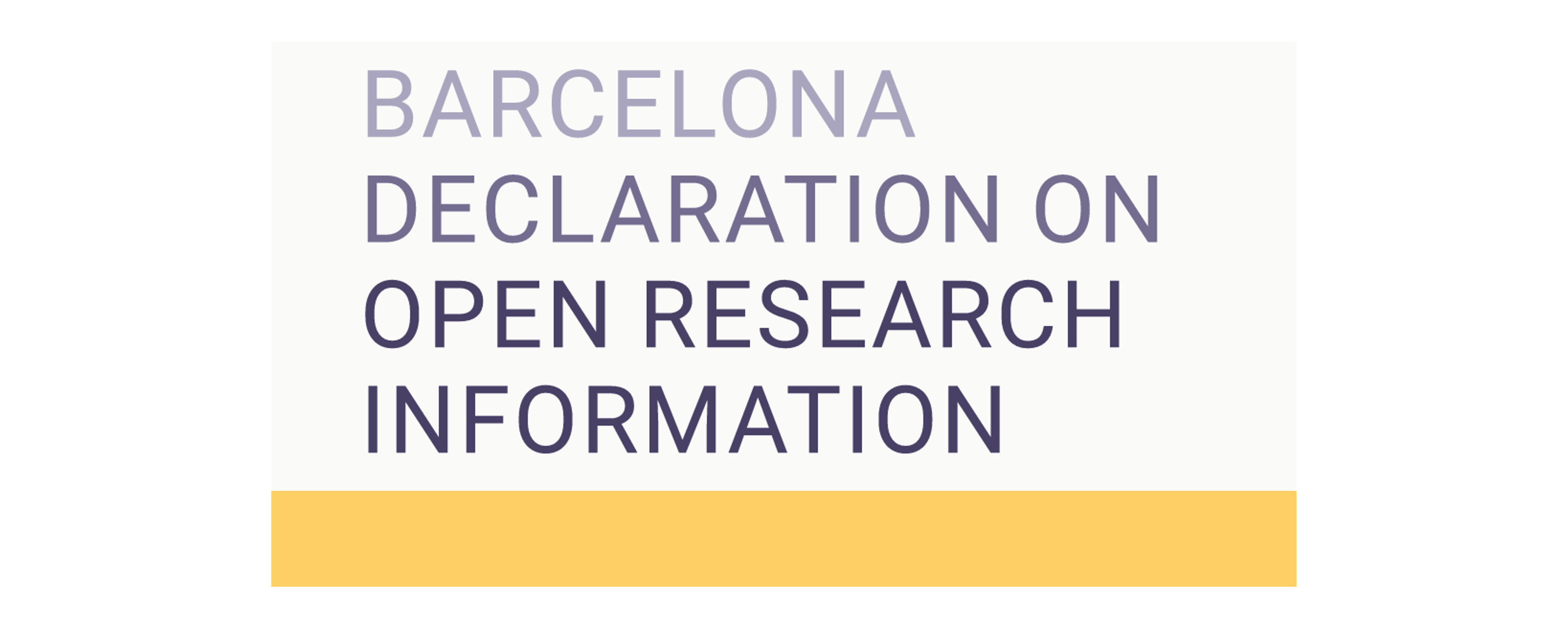News • 5/1/2024
Sage Bionetworks Joins Barcelona Declaration in Support of Open Science

Despite the growing support for open, transparent science practices, too often decision making in science is still based on closed research information.
This research information refers to information that relates to the conduct and communication of research, which may include metadata, bibliographic details or information on funding and grants. Much of this information remains locked inside of silos, which creates major barriers to the use and reuse of valuable information.
This is why over 60 signatories from more than 18 different countries have come together to sign the Barcelona Declaration on Open Research Information, with several other institutions acting as supporting providers of data, services and infrastructure. The declaration is focused on transforming the way research information is fundamentally used and produced. This openness will facilitate science policy decisions based on inclusive data and accelerate the global movement toward open science.
As a longtime visionary of open science, Sage Bionetworks has joined the list of signatories and aligned its strategic goals to support the declaration’s major commitments.
Commitment 1: We will make openness the default for the research information we use and produce
Sage Bionetworks’ mission is centered on driving biomedical innovation through truly open science practices. Dedicated teams of data managers and curators ensure that research information can be shared effectively across our portals and adhere to the highest levels of Findability, Accessibility, Interoperability, and Reusability (FAIR).
Commitment 2: We will work with services and systems that support and enable open research information
Sage’s cloud-based data platform, Synapse, serves users through ethical data sharing, open collaboration and research communication. All information generated in the research and publication process is made openly available on Synapse and can be readily cited through digital identifiers. Our meticulous governance systems ensure that all of this research information is shared responsibly, while protecting sensitive data.
Commitment 3: We will support the sustainability of infrastructures for open research information
Sage continues to expand its Synapse ecosystem so that we can more readily connect contributors and users of research information, and provide a robust infrastructure for increasing that usability. Our ongoing study of ethical, legal and social implications in research ensures that our information frameworks are cognizant of health equity and inclusion, and that this infrastructure is sustainable at the level of wider communities.
Commitment 4: We will support collective action to accelerate the transition to openness of research information
Norms around open research information will depend on a collective drive that spans disciplines and careers. Sage’s vision is one of radical collaboration, where communities are bridged and research silos no longer obscure progress. In service of this, we develop projects that allow everyone to contribute to the process of research discovery. These initiatives are guided by our team science expertise, ensuring that biomedical information can be shared and used in the most collaborative and effective ways.
“The imperative to transition from closed to open research environments is clear: unlocking research information—spanning metadata, bibliographic details, and funding data—can catalyze the global movement toward transparent and collaborative science,” says Susheel Varma, PhD, MBA, FBCS, Chief Data Officer at Sage Bionetworks. “By making openness the default, not only in our platforms like Synapse but across our entire operational ethos, we are setting new standards for how research information is shared and utilized.”
As Sage Bionetworks affirms its commitment to the Barcelona Declaration, the team hopes that the movement will inspire action from other organizations, helping to drive a future of biomedical innovation that transcends historical barriers and leads to new benchmarks in open science infrastructure.
Latest News
No articles